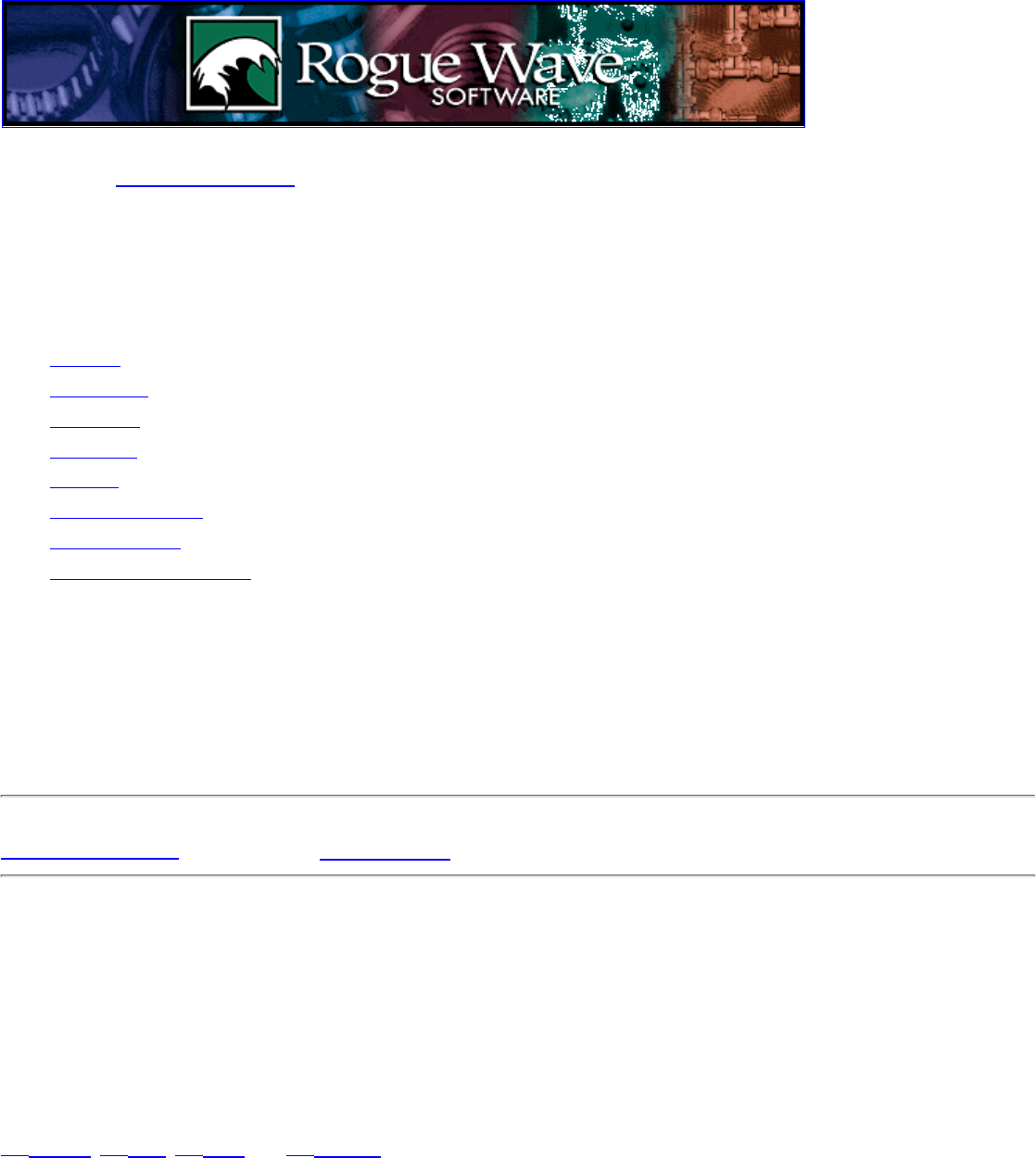Tools.h++ Class Reference
Table Of Contents
- Tools.h++ 7.0 Class Reference
- Intoduction
- Class Hierarchy
- RWAuditStreamBuffer
- RWBag
- RWBagIterator
- RWBench
- RWBinaryTree
- RWBinaryTreeIterator
- RWbistream
- RWBitVec
- RWbostream
- RWBTree
- RWBTreeDictionary
- RWBTreeOnDisk
- RWBufferedPageHeap
- RWCacheManager
- RWCLIPstreambuf
- RWCollectable
- RWCollectableAssociation
- RWCollectableDate
- RWCollectableInt
- RWCollectableString
- RWCollectableTime
- RWCollection
- RWCRegexp
- RWCRExpr
- RWCString
- RWCSubString
- RWCTokenizer
- RWDate
- RWDDEstreambuf
- RWDiskPageHeap
- RWDlistCollectables
- RWDlistCollectablesIterator
- RWeistream
- RWeostream
- RWFactory
- RWFile
- RWFileManager
- RWGBitVec(size)
- RWGDlist(type)
- RWGDlistIterator(type)
- RWGOrderedVector(val)
- RWGQueue(type)
- RWGSlist(type)
- RWGSlistIterator(type)
- RWGSortedVector(val)
- RWGStack(type)
- RWGVector(val)
- RWHashDictionary
- RWHashDictionaryIterator
- rw_hashmap
- rw_hashmultimap
- rw_hashmultiset
- rw_hashset
- RWHashTable
- RWHashTableIterator
- RWIdentityDictionary
- RWIdentitySet
- RWInteger
- RWIterator
- RWLocale
- RWLocaleSnapshot
- RWModel
- RWModelClient
- RWOrdered
- RWOrderedIterator
- RWpistream
- RWpostream
- RWSequenceable
- RWSet
- RWSetIterator
- rw_slist
- RWSlistCollectables
- RWSlistCollectablesIterator
- RWSlistCollectablesQueue
- RWSlistCollectablesStack
- RWSortedVector
- RWTBitVec
- RWTime
- RWTimer
- RWTIsvDlist
- RWTIsvDlistIterator
- RWTIsvSlist
- RWTIsvSlistIterator
- RWTPtrDeque
- RWTPtrDlist
- RWTPtrDlistIterator
- RWTPtrHashDictionary
- RWTPtrHashDictionaryIterator
- RWTPtrHashMap
- RWTPtrHashMapIterator
- RWTPtrHashMultiMap
- RWTPtrHashMultiMapIterator
- RWTPtrHashSet
- RWTPtrHashMultiSetIterator
- RWTPtrHashSetIterator
- RWTPtrHashTable
- RWTPtrHashTableIterator
- RWTPtrMap
- RWTPtrMapIterator
- RWTPtrMultiMap
- RWTPtrMultiMapIterator
- RWTPtrMultiSet
- RWTPtrMultiSetIterator
- RWTPtrOrderedVector
- RWTPtrSet
- RWTPtrSetIterator
- RWTPtrSlist
- RWTPtrSlistIterator
- RWTPtrSortedDlist
- RWTPtrSortedDlistIterator
- RWTPtrSortedVector
- RWTPtrVector
- RWTQueue
- RWTStack
- RWTValDeque
- RWTValDlist
- RWTValDlistIterator
- RWTValHashDictionary
- RWTValHashDictionaryIterator
- RWTValHashMap
- RWTValHashMapIterator
- RWTValHashMultiMap
- RWTValHashMultiMapIterator
- RWTValHashMultiSet
- RWTValHashMultiSetIterator
- RWTValHashSet
- RWTValHashSetIterator
- RWTValHashTable
- RWTValHashTableIterator
- RWTValMap
- RWTValMapIterator
- RWTValMultiMap
- RWTValMultiMapIterator
- RWTValMultiSet
- RWTValMultiSetIterator
- RWTValOrderedVector
- RWTValSet
- RWTValSetIterator
- RWTValSlist
- RWTValSlistIterator
- RWTValSortedDlist
- RWTValSortedDlistIterator
- RWTValSortedVector
- RWTValVector
- RWTValVirtualArray
- RWVirtualPageHeap
- RWvios
- RWvistream
- RWvostream
- RWWString
- RWWSubString
- RWWTokenizer
- RWXDRistream (Unix only)
- RWXDRostream (Unix only)
- RWZone
- RWZoneSimple
- Tools.h++ 7.0 Class Reference Appendix
- RWTPtrDlist
- RWTPtrDlistIterator
- RWTPtrHashDictionary
- RWTPtrHashDictionaryIterator
- RWTPtrHashSet
- RWTPtrHashTable
- RWTPtrHashTableIterator
- RWTPtrOrderedVector
- RWTPtrSlist
- RWTPtrSlistIterator
- RWTPtrSortedVector
- RWTValDlist
- RWTValDlistIterator
- RWTValHashDictionary
- RWTValHashDictionaryIterator
- RWTValHashSet
- RWTValHashTable
- RWTValHashTableIterator
- RWTValOrderedVector
- RWTValSlist
- RWTValSlistIterator
- RWTValSortedVector
- RWTPtrDlist
- Rogue Wave Licensing Statement

Click on the banner to return to the Class Reference home page.
Return to the Appendix home page.
©Copyright 1996 Rogue Wave Software
RWTPtrHashTable<T>
Alternate template: Standard C++ Library not required
Synopsis●
Please Note!●
Description●
Persistence●
Example●
Public Constructors●
Public Operators●
Public Member Functions●
Synopsis
#include <rw/tphasht.h>
unsigned hashFun(const T&);
RWTPtrHashTable<T> table(hashFun);
Please Note!
If you do not have the Standard C++ Library, use the interface described here. Otherwise, use the interface to
RWTPtrHashMultiSet described in the Class Reference.
Description
This class implements a parameterized hash table of types T. It uses chaining to resolve hash collisions. Duplicates are allowed.
It is a pointer based collection: pointers to objects are copied in and out of the hash buckets.
Parameter T represents the type of object to be inserted into the table, either a class or fundamental type. The class T must have:
well-defined equality semantics (T::operator==(const T&)).●
A user-supplied hashing function for type T must be supplied to the constructor when creating a new table. If T is a Rogue Wave
class, then this requirement is usually trivial because most Rogue Wave objects know how to return a hashing value. In fact, classes
RWCString, RWDate, RWTime, and RWWString contain static member functions called hash that can be supplied to the constructor
as is. The function must have prototype:
unsigned hFun(const T& a);
and should return a suitable hash value for the object a.
To find an object, it is first hashed to determine in which bucket it occurs. The bucket is then searched for an object that is equal (as
determined by the equality operator) to the candidate.
The initial number of buckets in the table is set by the constructor. There is a default value. If the number of items in the collection
greatly exceeds the number of buckets then efficiency will sag because each bucket must be searched linearly. The number of buckets










